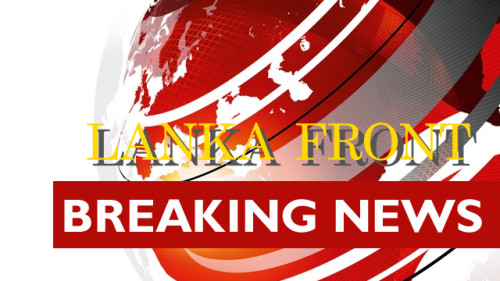MPs have overwhelmingly backed UK air strikes against so-called Islamic State in Syria, by 397 votes to 223, after an impassioned 10-hour Commons debate.
A total of 66 Labour MPs sided with the government as David Cameron secured a larger than expected Commons majority.
The PM said they had “taken the right decision to keep the country safe” but opponents said the move was a mistake.
Four Tornado jets have flown out of RAF Akrotiri, Cyprus, since the vote. Their destination has not been confirmed.
A further four fighter jets are on standby at the air base, which is used to launch bombing missions to Iraq.
BBC political correspondent Robin Brant said while the Ministry of Defence was not confirming where the jets were heading, it “would not be surprising” if they were bound for Syria.
Syria vote reaction: Live video and text updates
- Key quotes and clips: At-a-glance
- Syria air strikes: What you need to know
- Are there 70,000 Syrian ‘moderates’ ready to back UK?
- Where the UK’s parties stand on air strikes
Foreign Secretary Philip Hammond said he would not give a “running commentary” on operations, having earlier suggested bombings could begin as early as Thursday.
Welcoming the Commons result, Mr Hammond said Britain was “safer because of the actions taken by MPs today”. He added: “Military strikes alone won’t help Syria, won’t keep us safe from Daesh. But this multi-strand approach will.”
Labour leader Jeremy Corbyn argued that the case for war “does not stack up” – but his party was split, with senior Labour figures, including members of the shadow cabinet voting with the government after they were given a free vote.
The 66 MPs who backed military action was equivalent to 29% of the parliamentary party.
Shadow foreign secretary Hilary Benn was applauded by MPs from across the House, particularly on the Conservative benches, when he urged his own side to “confront this evil” posed by Islamic State, who he said “held our democracy in contempt”.
Analysis by political editor Laura Kuenssberg
David Cameron has achieved his long-held goal.
Intervening against the extremist forces who call themselves the Islamic State in Syria – it seemed impossible less than a month ago. But in the weeks since the Paris attacks, the prospect of extending bombing strikes into Syria from Iraq has taken on a reluctant inevitability.
Planes may be dropping bombs by tonight.
But for the prime minister, with this, his third big foreign intervention – Libya, Iraq, now Syria – pulling together a wider plan to achieve real peace is a far more complex task, one he acknowledges the UK cannot complete on its own.
In an impassioned speech, Mr Benn said the international community was “faced by fascists and what we know about fascists is that they must be defeated”. While there were “rarely perfect circumstances to deploy military forces”, he said “the threat is now” and the UK must rise to the challenge.
Former Cabinet ministers Alan Johnson, Yvette Cooper and Margaret Beckett also spoke in favour of military action while deputy leader Tom Watson and former acting leader Harriet Harman also voted with the government.
But former leader Ed Miliband was among the 153 Labour MPs to vote against.
Reacting to the vote, aides to Mr Corbyn said a majority of the parliamentary party and the shadow cabinet had backed his position and the leader’s authority had been “enhanced”.
Shadow International Development Secretary Diane Abbott said Mr Corbyn was more in line with the public than the prime minister, telling the BBC that “very soon public opinion will tire of Cameron’s war”.
The vast majority of Conservative MPs supported military action, with just seven – far fewer than expected – voting against.
The SNP, all of whose 54 MPs opposed military action, said it was disappointed and feared the outcome would lead “to Iraq and Libya all over again”.
But the United States, which along with France, Russia and other countries are already conducting missions in Syria, welcomed the vote, saying “it looks forward to having UK forces flying with the coalition over Syria”.
Full list: The Labour MPs who supported military action
- Heidi Alexander, Ian Austin, Adrian Bailey, Kevin Barron, Margaret Beckett, Hilary Benn, Luciana Berger, Tom Blenkinsop, Ben Bradshaw, Chris Bryant, Alan Campbell, Jenny Chapman, Vernon Coaker, Ann Coffey, Yvette Cooper, Neil Coyle, Mary Creagh, Stella Creasy,
- Simon Danczuk, Wayne David, Gloria De Piero, Stephen Doughty, Jim Dowd, Michael Dugher, Angela Eagle, Maria Eagle, Louise Ellman, Frank Field, Jim Fitzpatrick
- Colleen Fletcher, Caroline Flint, Harriet Harman, Margaret Hodge, George Howarth, Tristram Hunt, Dan Jarvis, Alan Johnson, Graham Jones, Helen Jones, Kevan Jones, Susan Elan Jones, Liz Kendall, Dr Peter Kyle, Chris Leslie, Holly Lynch, Siobhain McDonagh,
- Pat McFadden, Conor McGinn, Alison McGovern, Bridget Phillipson, Jamie Reed, Emma Reynolds, Geoffrey Robinson, Joan Ryan, Lucy Powell, Ruth Smeeth, Angela Smith, John Spellar, Gisela Stuart
- Gareth Thomas, Anna Turley, Chuka Umunna, Keith Vaz, Tom Watson, Phil Wilson and John Woodcock
-BBC –



